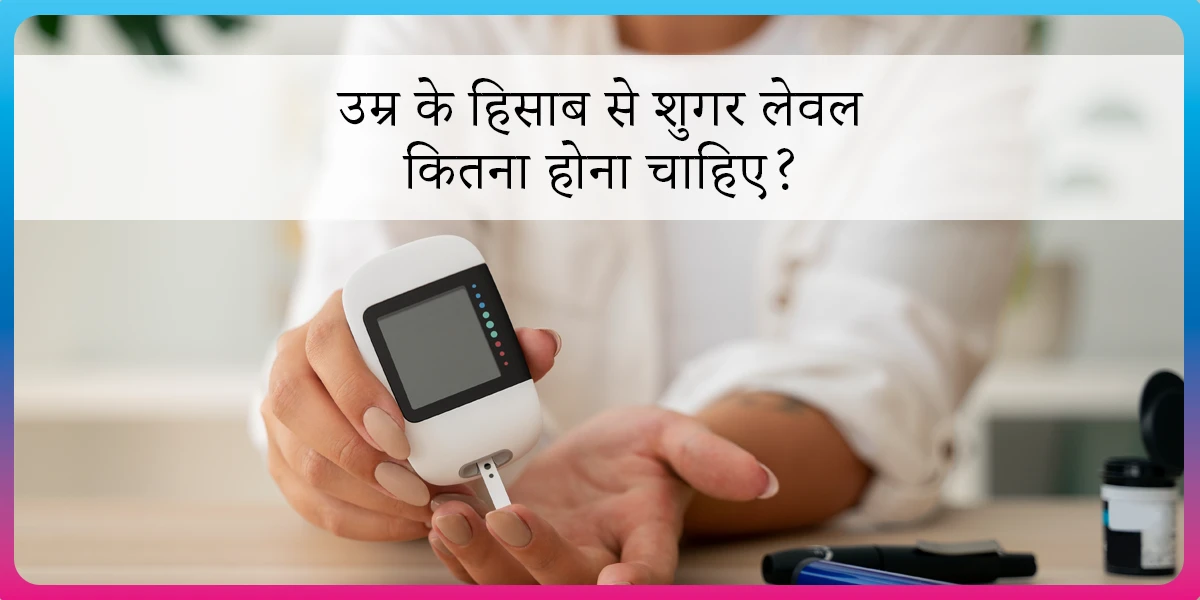Top 12 Tips for a Healthy Heart

Did you know that cardiovascular diseases are a leading cause of death in India, accounting for 27% of total deaths? – as highlighted by a Lancet study.
Alarming, right? But here’s the good news: small changes in your lifestyle can make a huge difference to your heart health.
Inspired by the American Heart Association’s (AHA) Life’s Essential 8 checklist, here are twelve easy, practical, and relatable health tips for a healthy heart.
Find your heart's true age to prevent complications.Heart Age Calculator
12 Most Effective Heart Healthy Tips
Here are some practical and doable health tips for a healthy heart:
1. Relish a Heart Healthy Diet
Eating healthy doesn’t mean boring! Our nutritionists recommend making smart food choices, limiting calorie intake, and avoiding trans-fat and partially hydrogenated oils to maintain good heart health.
Think colourful plates filled with green vegetables, juicy fruits, whole grains, beans, legumes, and nuts. If you’re non-vegetarian, lean proteins like fish, skinless chicken, and seafood can be great choices.
Limit sweetened drinks, processed and packaged foods such as instant noodles and sugary breakfast cereals. Avoid refined carbohydrate foods like naan, white bread, samosas, bhatures, and bakery items.
Reduce consuming sweets like gulab jamun, jalebi, and biscuits. Also, limit full-fat dairy products, deep-fried foods like sev, farsan & namkeens, and tropical oils like coconut and palm, as they increase bad cholesterol. Prefer home-cooked food as far as possible.
Restrict eating out to once or twice a month.
Always remember to read the nutrition labels whenever you buy a new food item:
- Look for labels that say – low saturated fat, zero trans fat, low sodium or rich in fibre & omega-3.
- Verify the heart-healthy claims. “Low-fat” or “Light” doesn’t always mean healthy – it may still have high sugar or salt.
- Ingredients are listed in descending order by weight. For example, if the label says “Whole grain cereal”, whole grain should be the first ingredient, not just in small amounts.
- “No cholesterol” doesn’t mean no trans fats – check the ingredient list. Trans fats should be 0% on the label.
- Choose foods with ≤140 mg Sodium per serving. Avoid items with sodium benzoate or monosodium glutamate (MSG).
- ≥3g Dietary fibre per serving is a good choice.
- Opt for foods with ≤5g sugar per serving. Avoid “added sugar,” “high fructose corn syrup,” or “malt syrup” in the ingredient list.
- Avoid foods with refined flour (maida), hydrogenated oils, artificial flavours, or preservatives.
- Look for FSSAI Health Star Rating. More stars indicate a better nutritional profile.
2. Make Time for Breakfast
Eating a nutritious and savoury breakfast is essential for heart health. Starting your day with a balanced meal can help regulate blood sugar levels, maintain a healthy weight, and provide your body with energy. Include whole grains, fruits, and protein-rich foods like eggs or legumes for a heart-friendly start.
3. Get Moving, Desi Style
Fitness doesn’t have to mean fancy gym memberships. Your morning walk, cycling with your friends, dancing to Bollywood songs (yes, that counts!) or even doing house chores like mopping can keep your heart in shape.
Set small goals, like 30 minutes of activity daily. The key is consistency. If you have a sedentary work regime, including a 10-minute break every hour will help you keep moving.
List of exercises to improve heart health:
- Brisk walking
- Running
- Swimming
- Jumping Jack
- Cycling
- Stair climbing
4. Quit Smoking
Smoking and alcohol consumption can significantly impact heart health.
Did you know smoking doubles your risk of heart disease? Whether it’s cigarettes, e-cigarettes, vapes, or even passive smoking, it’s harmful. These tobacco products contain hazardous chemicals like nicotine, which can inflame and constrict your arteries.
Interestingly, if you quit smoking for just one year, you can reduce your risk for heart disease by 50%. Imagine what that could mean for your health!
5. Eliminate Alcohol
When it comes to alcohol, there really is no “safe” amount. Even drinking a little can affect your blood pressure and contribute to heart problems.
Quitting alcohol can do wonders for your heart, helping improve blood circulation, lower cholesterol, and reduce the risk of heart disease. And if you’re finding it hard to quit these habits, don’t hesitate to seek support from a healthcare professional – they can help guide you along the way.
6. Prioritise Quality Sleep
Think of sleep as a repair session for your heart and body. Sleeping 7-9 hours a night can do wonders for your overall health. Quality sleep helps repair cells, tissues, and blood vessels, strengthens your immune system, and enhances brain function.
This is how can improve your sleep hygiene:
- Avoid scrolling through social media before bed.
- Stick to a regular sleep schedule – even on weekends.
- Limit alcohol and caffeine intake after the evening.
- Sip on warm milk to relax.
- Optimise the bedroom environment to promote sleep.
Find your heart's true age to prevent complications.Heart Age Calculator
7. Lose those Extra Kilos
A healthy weight isn’t about looking thin but feeling good. Excess weight, especially around your waistline, puts stress on your heart. For Indian adults, a healthy BMI (Body Mass Index) range is 18.5 and 23 kg/m2. You can calculate the BMI by dividing your body weight in kilograms by the square of your height in meters.
But BMI isn’t the only measure to keep an eye on. Waist circumference is also an important indicator of heart health. For men, a waist measurement above 40 inches (102 cm) and for women, above 35 inches (88 cm) can increase the risk of heart disease, as excess fat around the abdomen can put extra strain on the heart.
Attain a healthy body weight by:
- Exercising daily.
- Controlling your portion sizes.
- Consuming fresh green vegetables, fruits, whole grains, beans, legumes, and nuts.
- Staying away from fried and sugary foods.
8. Eat Dark Chocolate
Did you know that eating dark chocolate in moderation can actually benefit your heart? Rich in flavonoids, dark chocolate can help improve blood flow and lower blood pressure. Opt for chocolate with at least 70% cocoa to enjoy the heart-healthy benefits.
9. Know Your Numbers
Keep track of important health numbers like blood pressure, cholesterol, and blood sugar levels. Regular monitoring can help you catch potential issues early and take the right steps to prevent heart disease. Understanding these numbers gives you control over your heart health.
- Cholesterol: HDL (good) cholesterol should be 60 mg/dL or higher, LDL (bad) should be less than 100 mg/dL, and another bad cholesterol is VLDL, which should be typically under 30 mg/dL. High levels of LDL/VLDL can clog arteries, leading to heart attacks or strokes.
- Blood Sugar: Maintain fasting blood sugar under 100 mg/dL. Levels above 126 mg/dL increase heart disease risk.
- Blood Pressure: Keep systolic BP under 120 mmHg and diastolic below 80 mmHg to reduce the risk of heart attacks and strokes. Regular monitoring is key to managing hypertension.
10. Cut Down Sodium, Add More Potassium
Indian diets tend to be high in salt – from pickles to papads. But your heart prefers less sodium and more potassium.
To improve heart health, avoid salty snacks and food items rich in sodium. Your daily total sodium intake should not exceed 1,500 mg.
Avoid french fries, pizza, sausage, canned fish, and salted nuts to reduce sodium intake. At the same time, increase potassium intake up to 3,000 and 3,500 mg for a healthy heart.
But here’s the catch – having too much potassium isn’t great either, especially if you have kidney issues. Always aim for a well-rounded diet and consult a doctor before making drastic changes in your diet.
Some potassium-rich foods include – Bananas, spinach, coconut water, avocados and sweet potatoes.
11. Manage Stress
Chronic stress can negatively impact your heart health. Stress hormones can increase blood pressure, contribute to unhealthy habits like overeating, and raise your risk of heart disease.
Incorporating relaxation techniques such as meditation, yoga, or deep breathing can significantly lower stress levels and protect your heart.
12. Laugh Your Heart Out
Yes, laughter really is one of the best medicines! Scientifically, it reduces stress hormones and lowers arterial inflammation, thereby boosting mood and improving heart health. They also increase HDL levels and reduce BP.
So, laugh your heart out by watching a comedy movie, spending time with kids or close companions – they’re natural stress-busters!
Talk with Your Doctor
Have regular check-ups with your doctor to assess your heart health. Discuss any concerns or symptoms you may have and work together to create a plan to keep your heart in top shape. Your doctor can offer personalised advice based on your health status and family history.
Find your heart's true age to prevent complications.Heart Age Calculator
How We At Fitterfly Can Help You?
Your heart works tirelessly to keep you healthy – it’s time to give it the attention it deserves.
With India’s first heart health program, FitHeart, you can take charge of your cardiovascular health in a proactive and personalised way.
Remember, it’s never too late to start caring for your heart – it’s a gift that keeps you going, so keep it strong!
Join the 30,000+ people who have already transformed their health with Fitterfly. Ready to start? Click here to get started today!
This blog provides general information for educational and informational purposes only and shouldn't be seen as professional advice.
Frequently Asked Questions
Why is HDL considered good cholesterol?
HDL cholesterol is referred to as good cholesterol because it absorbs other cholesterol in the blood and transports it back to the liver. The liver then flushes the cholesterol from the system, thus reducing the risk of heart disease and stroke.
Why is LDL considered bad cholesterol?
LDL cholesterol is considered bad cholesterol as it accumulates in the blood vessels' inner walls. The condition hardens and narrows your arteries and may lead to a condition called atherosclerosis.
How many hours of quality sleep is good for your heart health?
The healthy BMI range is between 18.5 kg/m2 and 24.9 kg/m2. If your BMI is below 18.5 kg/m2, then you are underweight, a BMI between 25.0 kg/m2 to 29.9 kg/m2 suggests overweight, whereas a BMI above 30 kg/m2 falls under the obese category.
Why is smoking hazardous for your heart health?
Cigarettes contain a toxic chemical, nicotine, which is hazardous for your heart as it may inflame and harden the arteries, which in turn may narrow the arterial lumen and increase heart rate, the flow of blood to the heart, and blood pressure.
How can I make my heart strong?
You can strengthen your heart by maintaining a balanced diet rich in whole grains, vegetables, fruits, and healthy fats. Regular physical activity, managing stress, and getting adequate sleep also contribute to a stronger heart. Avoiding smoking, limiting alcohol, and staying on top of your health numbers, like blood pressure and cholesterol, are equally essential.
What are 5 ways to keep your heart healthy?
To keep your heart healthy, eat a balanced diet rich in fruits, vegetables, and whole grains while limiting processed foods. Stay physically active with regular exercise, manage stress through relaxation techniques, get 7-9 hours of quality sleep, and monitor key health markers like blood pressure, cholesterol, and blood sugar.
What is the healthiest thing for your heart?
The healthiest choice for your heart is adopting a heart-healthy lifestyle. This includes eating a diet low in saturated fats, trans fats, and added sugars while including fibre-rich and omega-3-rich foods. Staying active, managing stress, and avoiding tobacco are also key to optimal heart health.
How can I improve my heart life?
Improving your heart’s longevity involves taking consistent care of your cardiovascular health. This includes exercising regularly, eating a heart-friendly diet, keeping a check on health markers like cholesterol and blood pressure, and maintaining a healthy weight. Small changes, like incorporating mindfulness to manage stress and limiting processed foods, can make a big difference.
How can I help my heart naturally?
You can support your heart naturally by eating whole, unprocessed foods, staying hydrated, and engaging in at least 30 minutes of physical activity most days. Practices like yoga and meditation can help reduce stress, while regular check-ups ensure that potential issues are addressed early. Simple habits, such as reducing salt intake and quitting smoking, can also have a significant positive impact.


















